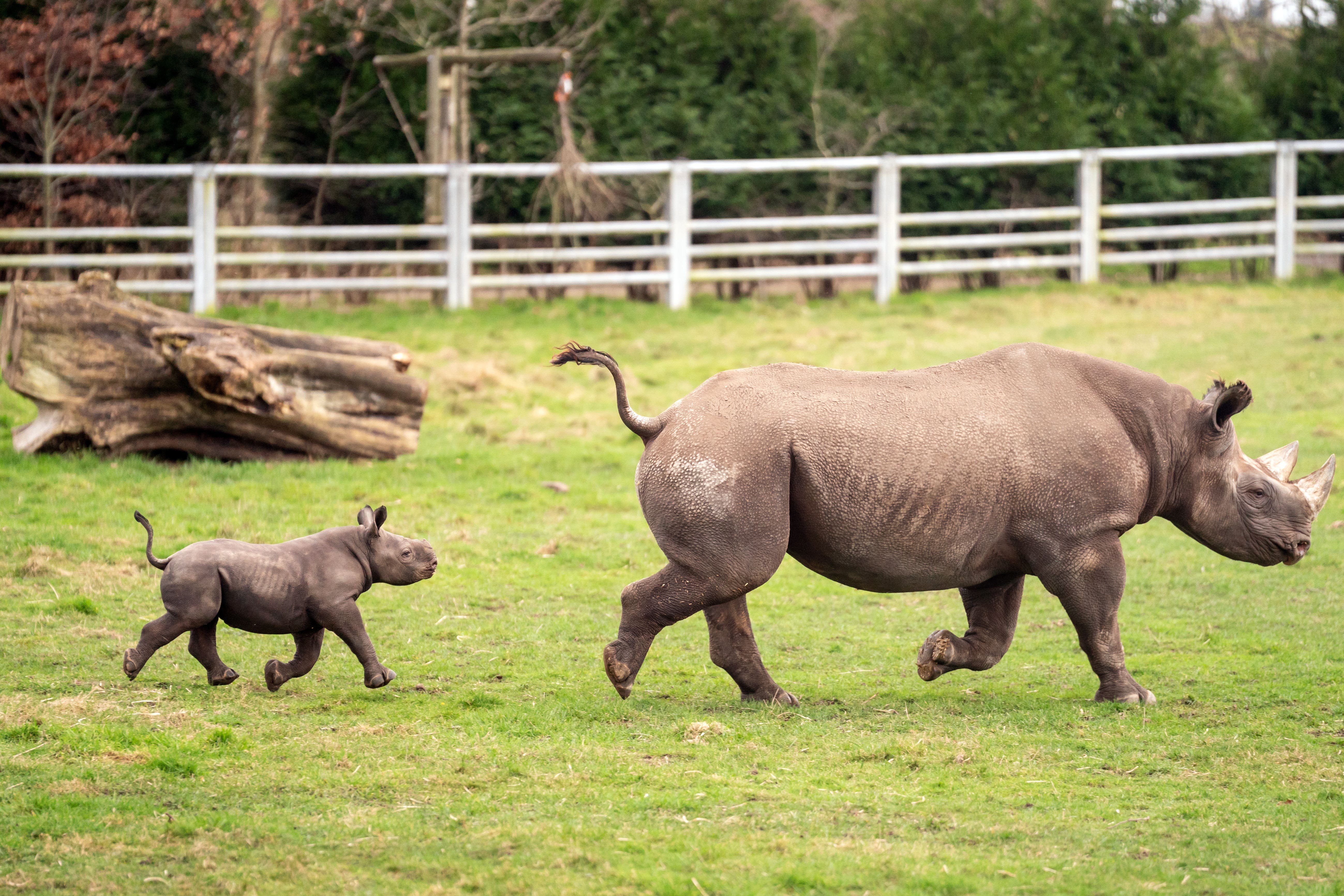Critically endangered black rhino calf born in Yorkshire
The three-week-old youngster, who already weighs 11st 7lbs (73kg), has emerged into the rhino reserve at the Yorkshire Wildlife Park, in Doncaster.

Your support helps us to tell the story
From reproductive rights to climate change to Big Tech, The Independent is on the ground when the story is developing. Whether it's investigating the financials of Elon Musk's pro-Trump PAC or producing our latest documentary, 'The A Word', which shines a light on the American women fighting for reproductive rights, we know how important it is to parse out the facts from the messaging.
At such a critical moment in US history, we need reporters on the ground. Your donation allows us to keep sending journalists to speak to both sides of the story.
The Independent is trusted by Americans across the entire political spectrum. And unlike many other quality news outlets, we choose not to lock Americans out of our reporting and analysis with paywalls. We believe quality journalism should be available to everyone, paid for by those who can afford it.
Your support makes all the difference.A baby black rhino has been born in Doncaster.
The calf, which is one of the rarest mammals in the world, is the first critically endangered black rhino to be born at the Yorkshire Wildlife Park (YWP).
The three-week-old youngster, who already weighs 11st 7lbs (73kg), was born in January and spent his first few weeks in the rhino house with his mother, Najuma.
But rangers have now decided let him out into the three-acre Into Africa! reserve, where he stayed close to his mother as he explored the outdoors for the first time.
The park said that seven-year-old Najuma was pregnant for 15 months before giving birth, and this is an event of “great significance” as international conservation efforts continue to protect the species.
Both Najuma and father Makibo, eight, joined YWP in 2018 as part of an international breeding programme to save the species, which is classed as critically endangered.
Hoofstock Ranger Beth Phelan said: “His mum is probably the biggest eater in the house, in terms of rhinos, and he’s picked that up immediately.
“He’s a bit like a toddler – anything that’s edible he will put in his mouth, even though he can’t eat it, even though he’s got no teeth yet, he’s trying this out.”
The newborn calf is becoming such a character and bound to become a visitor favourite
She said: “He is incredibly energetic, just like his mum.
“Obviously, she’ll be getting in a lot more sleep at the moment – with feeding him and looking after him – than she normally would.
“But, when she is sleeping, generally that’s the time that’s he’s running round the pen, he’s jumping on her, trying to wake her up, bothering her.”
YWP director of animals Charlotte MacDonald said: “The newborn calf is becoming such a character and bound to become a visitor favourite.”
Dr MacDonald said: “This very special birth is fantastic news for everyone here at YWP.
“The news is particularly important because rhinos are a critically endangered species. The international breeding programme is very important for this species.
“Every birth is a milestone in our global conservation efforts. The aim is to ensure we are in a position to increase re-introductions into the wild.”
The park said that Eastern Black Rhinos are the rarest of the three remaining subspecies.
Between 1970 and 1992, their population declined by 96% to 2,300, largely due to poaching for their horns.
But numbers have now risen to around 6,000, following global conservation efforts,
The European Breeding Programme currently holds around 100 individuals in various wildlife parks and zoos.
Visitors to the park have donated thousands of pounds to the Wildlife Foundation, a charity based at YWP which has worked closely with Save the Rhino International and Fauna and Flora International funding projects protecting them from poachers and preserving their habitat.